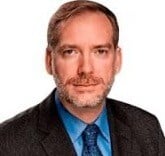Wednesday, August 6
1:00pm Pacific US Time
Time Zone Converter*
Abstract
Join us for an exclusive, executive-level forum exploring how geopolitical strategy can be leveraged for business growth in the semiconductor and adjacent industries. This event offers a practical framework for understanding global dynamics and turning uncertainty into opportunity.
Leading geopolitics expert Rodger Baker will provide a snapshot of the current state of the world with a particular emphasis on the places and regimes that impact the semiconductor industry. Attendees will then dive into actionable tools and frameworks designed to help executives integrate geopolitical thinking into strategic decision-making.
A Q&A session will follow.
Biography

Rodger Baker has served as the executive director of the Stratfor Center for Applied Geopolitics at RANE, a global center of excellence for geopolitical intelligence and analysis.
Baker’s core emphasis is the multidisciplinary approach to geopolitics and the evolution of international relations to develop mid- and long-term forecasts to assist companies, governments and other globally engaged organizations make informed decisions.
Baker holds a master's degree in military history from Norwich University, the oldest private military university in the United States. He has studied and worked in South Korea and graduated with honors from Southampton College, Long Island University. Baker regularly holds exchanges with academic institutes and research groups around the world and frequently travels to brief executives and corporate boards as well as deliver keynote addresses to a wide range of industry groups.

Michael Hochberg is a visiting scholar at the Cambridge University Centre for Geopolitics, where he is now working on a book devoted to applied geopolitics. Hochberg has been a physicist, an engineer, a professor, a startup founder, an executive at startup companies, an executive at a large multinational, and a freelance advisor and board member. He is fluent in the languages of technology, geopolitics, policy, business and strategy, and is particularly interested in the areas where these different fields intersect.
Hochberg spent much of his youth surreptitiously working his way through his father’s library, reading Thucydides and Mackinder when he was supposed to be doing homework or sleeping. He worked in high school as an intern at his father’s startup, Strategic Forecasting, Inc. (Stratfor), which was, in the late 1990s, the first private-sector geopolitical advisory firm.
In college, Hochberg turned his attention to technology and physics: While an undergraduate studying physics at Caltech, Hochberg founded his first company, Simulant, which developed supercomputing software. Still an undergrad, he founded Luxtera (later acquired by Cisco), which built hardware deployed today in data centers worldwide.
In graduate school, Hochberg won an award for the best thesis by a graduating student in nanotechnology. He completed his MS degree in two years, and his PHD in one year.
After receiving his Ph.D. from Caltech, Hochberg went on to become a professor at UD, UW, and NUS, and he founded Silicon Lightwave Services, which did silicon chip design services for commercial and government clients, and then Elenion (acquired by Nokia), which built coherent transceivers which are deployed worldwide in telecommunication systems. Hochberg joined Nokia as CTO of the Optical Subsystems business unit. The startups he co-founded have generated over a billion dollars in aggregate exit value.
Michael won several awards for his work, including an NSF Graduate Research Fellowship, a U.S. Air Force Young Investigator Program Award, a Singapore National Research Foundation Fellowship, and a Presidential Early Career Award in Science and Engineering, which is the highest honor granted by the U.S. government to young scientists. His work has been cited over 20,000 times in the scientific literature. His articles have appeared in Science, Nature, and other top scientific journals.
While Hochberg was employed in the private sector, the Chinese national champions posed a direct technological and sharp-power challenge to his businesses. The failure of the United States during those years to confront the PRC led Hochberg to write the “Long Telegram for the 21st Century”, a document that denounced that autocratic regime’s illegitimate practices. That document was shared with U.S. government officials in 2018 and is now to be found on Hochberg’s substack, longwalls.substack.com
Leveraging his experiences in the spheres of business strategy, academia, and commerce, Hochberg now devotes his attention to geopolitics, foreign relations, grand strategy, economic statecraft and technology policy. His predictive piece in The Hill, “Could the U.S. fight a four-front war? Not today”, predicted the current dilemma faced by the U.S. and its allies in fighting a multifront war. His recent work on atrocity as a strategy of warfare in Gaza was later confirmed by the comments by Yahya Sinwar, the leader of Hamas, as published in The Wall Street Journal. He has published on geopolitics, national security, and grand strategy in various outlets including National Review Online, The Hill, RealClearDefense, Fast Company, American Spectator, and Naval War College Review.


